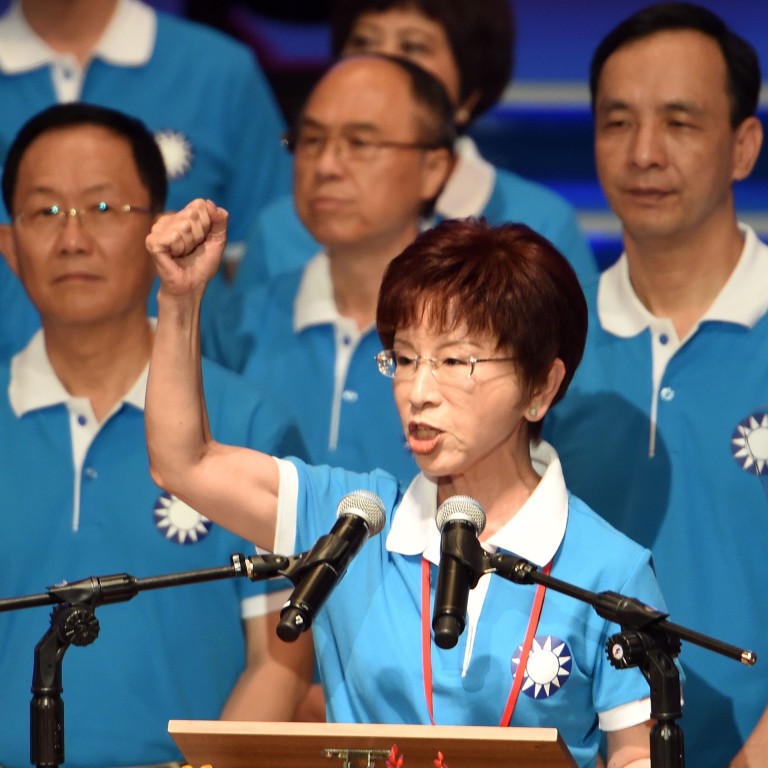
Taiwan will soon have a female president, marking a watershed for the island and Asia
The next stage of the evolution of democracy in Asia takes place in January, when a woman is elected president of Taiwan. That outcome is certain with the two leading political parties, the Democratic Progressive Party and the Kuomintang, both fielding female candidates.
The next stage of the evolution of democracy in Asia takes place in January, when a woman is elected president of Taiwan. That outcome is certain with the two leading political parties, the Democratic Progressive Party and the Kuomintang, both fielding female candidates. The occasion will be a landmark for China and the region, a moment for both genders to celebrate. It will be a lesson in inclusive politics, promising new ways of thinking and understanding.
A woman president was ensured on Sunday when the ruling KMT officially nominated Hung Hsiu-chu, 67, to run against the DPP's Tsai Ing-wen, 58. Hung put herself forward after other KMT heavyweights declined to stand; the DPP has a commanding lead in opinion polls as a result of President Ma Ying-jeou's policies, weak governance and a lacklustre economy. Regardless of which woman wins, though, both are equal to their male counterparts in the art of politics. That is in large part down to the island's development beyond purely Confucian thinking since democratisation began in 1987. A strong women's movement, political gender quotas and improving education have been important factors.
The traditional ways of the leadership of the Communist Party has ensured that politics on the mainland remains firmly male-dominated. No woman sits on the seven-member elite Politburo Standing Committee, while there are just two among the 25 members of the Central Committee. Female representation was higher than it is now during the Mao Zedong era half a century ago. There is also a sense that there will not be change any time soon: in March, just before International Women's Day, five feminists were arrested while staging peaceful protests against sexual harassment.
Taiwan's choosing a woman leader will also be an important occasion for Asia. While a female head is not rare among the region's governments, all have reached that position due to the legacy of a father, brother or husband. Tsai or Hung will have gained office on their own accord, their skills and abilities having got them there rather than through a famous name or the connections of a male relative.
There is unlikely to be any difference between a female and male president as to how the island approaches the mainland; politics determines that. There could be subtle differences in style, though. A female president can bring in fresh thinking and perspective to lead Taiwan forward.

